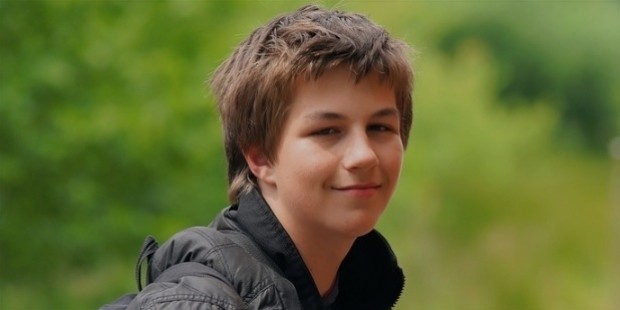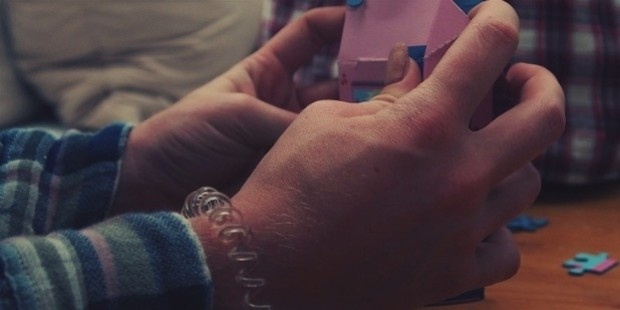Trust Your First Instincts

There are so many ways to make a choice when faced with a fork in the road! It can feel scary to decide when the outcome is uncertain. People rely on a variety of decision-making tools – pro/con lists, writing down your options and then picking one, getting advice from friends, family or mentors, prayer, meditation, taking a walk to think.
But psychologists and life coaches are discovering more and more that following your first impulse usually yields the most favorable results. The reason for that is simple – your life is, in a word, yours. No one can live it but you.
There is a right way and a wrong way to proceed, however! Being rash or impulsive is usually the quickest route to having extra work to do to make up for your overly hasty actions. Taking things step by step and researching a given option thoroughly before acting on it will prevent regrettable mistakes and unnecessary do-overs. But giving due recognition to the first solution that comes to you validates every faculty that we have at our disposal – our mind, heart, body, spirit and values.
1. Trust Your First Idea/ Thought

Ideas to Start And End Your Day
Practice this the next time you have a minor decision to make, such as where to go for Happy Hour or what movie to see – whatever springs to mind first, do it! How did that work out? In the book Blink: The Power of Thinking Without Thinkingwriter Malcolm Gladwell discusses how the judgement that first springs to your mind is usually the correct one. Again, that doesn’t mean you shouldn’t act without backing up that conclusion with a little research, knowledge, advice or prediction. It simply means that avoiding “analysis paralysis” or over-thinking a decision is a quality practice to cultivate.
2. Trust Your Emotions

Emotions are not always popular! Certainly, unloading a dramatic display of The Feels without slowing down to think about what you are saying or doing first is childish, unpleasant and unprofessional. On the other hand, most people have been taught at some point or another that whole sets of emotions are unacceptable, and so they train themselves out of feeling (or expressing - who are we kidding, really?) whole slices of the pie of human experience that aren’t considered “nice” or “strong”.
This isn’t super workable, because as we go along in life, we will have a variety of experiences, and at some point, we will feel every possible emotion. This is the way it’s supposed to be – that’s what it means to be human! So learning to understand, evaluate and communicate your emotions can be an invaluable decision-making tool. As an added bonus, you will become more empathetic!
In The 28 Laws of Attraction: Stop Chasing Success and Let It Chase You,Life Coach Thomas J. Leonard suggests becoming more sensitized (as opposed to sensitive), rather than less. So, whatever happens and however you feel about it, you pay more attention, rather than going numb. Decisions become more about what you feel, so your life becomes more in tune with what is going on in your heart. Pretty good Jedi trick, right?
3. Trust Your Gut

There is increasing scientific evidence that the brain is actually linked to your digestive system, so there is some literal truth to the saying “trust your gut”. But it’s not only your gut – those hairs on the back of your arms, the muscles in your neck and back and that dry feeling in your mouth are all trying to tell you something, too. What is it?
In his book The Gift of Fear: Survival Signals That Protect Us from Violencesafety expert Gavin de Becker describes situations where people have escaped or survived risky situations by paying attention to the signals their body gave them. De Becker promotes the idea of trusting your gut in every scenario, but provides one caveat: learn how to distinguish between gut feelings and snap judgements or prejudices.
4. Trust Your Ideals/ Values

Many people follow a spiritual or moral path to gain assistance in making positive decisions. Others develop a moral criteria for themselves through searching, studying, contemplating and evaluating of several thought schools. Having a formal set of values or cherished beliefs can provide a framework for decision making. Can it sometimes make us dogmatic or rigid? Sure. But having a starting place for discussion can be very helpful as well.
5. Trust Your Desires/ Highest Wishes

We all have dreams. Thinking about the big picture, the vision of what you want out of life can really provide some perspective when trying to decide what course of action to take. Is this path going to get you closer to the life you’ve always desired? A fun way to approach this is to think about what you wanted when you were a child.
Those unfettered, unedited fantasies were pretty fantastic, weren’t they? Wouldn’t it be great to get back to dreaming that big? You may not get all of it, but you could get some of it, and wouldn’t that be better than none of it? It’s certainly worth reaching for!
No matter whether you are a fly-by-the-seat-of-your pants person, or a careful, rational, methodical decision-maker, there is bound to be some value in considering the first flash of insight that comes to you. What if it meant that, in time, you could make faster, better decisions?









